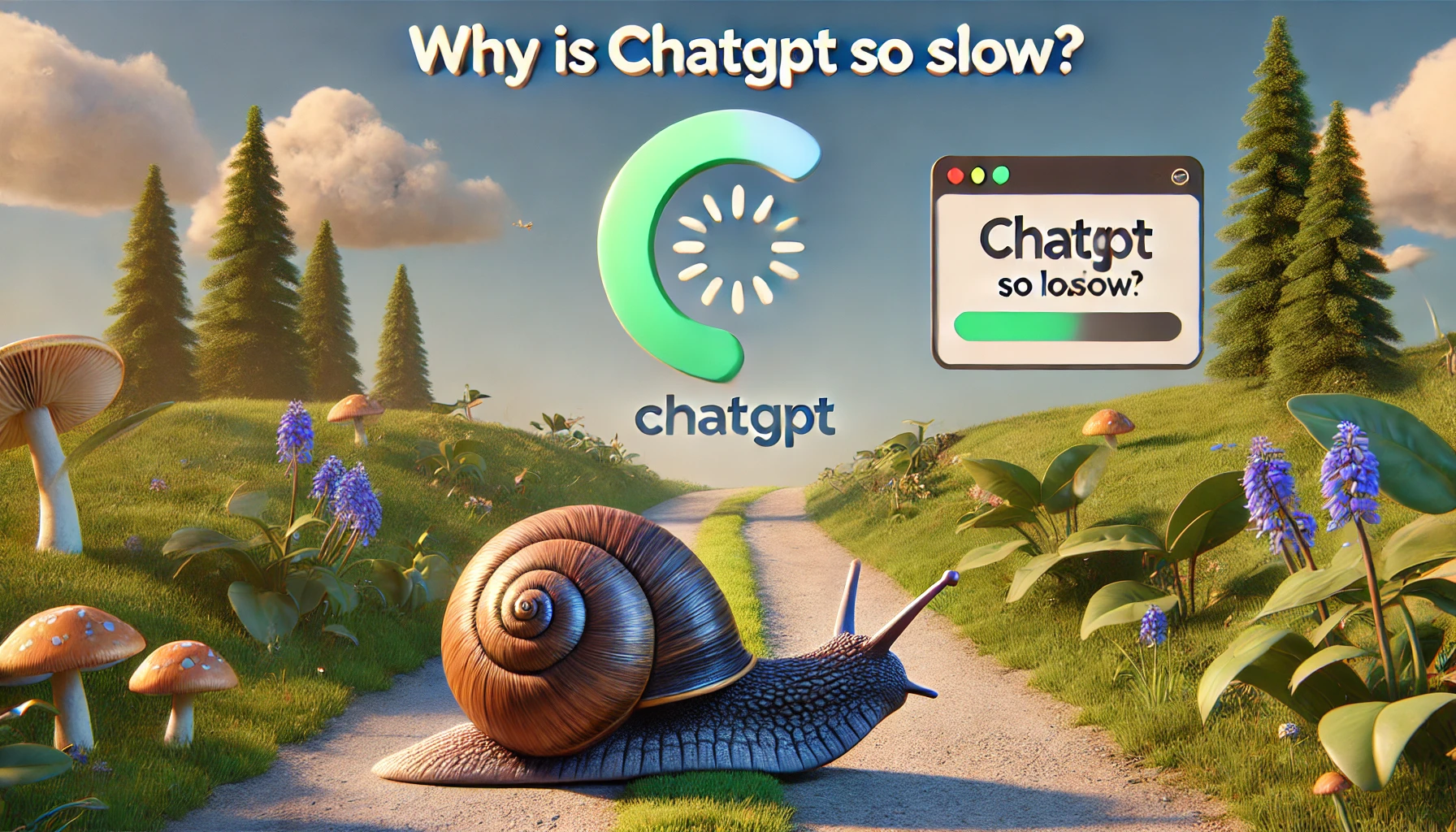Table Of Content
Using ChatGPT can be frustrating when it responds slowly, so Why is my ChatGPT So Slow today? Reduced speed in token generation can significantly hinder your productivity and disrupt your workflow. Let’s dive into the main reasons behind ChatGPT‘s sluggish performance and explore potential solutions to help you get back on track.
Common Causes of ChatGPT’s Slow Performance
- Server Overload ChatGPT often experiences high demand, especially during peak usage times. When too many users access the service simultaneously, it can strain the servers, leading to slower response times. This is a common issue that many users face and is often more noticeable during busy hours.
- Network Connectivity Your internet connection plays a crucial role in how quickly ChatGPT can respond. Slow or unstable connections can cause significant delays. Ensuring that your network is fast and reliable is essential for optimal performance.
- Device Performance The device you’re using can impact ChatGPT’s speed. Older hardware or devices with limited resources might struggle to run the AI efficiently, leading to slower responses. Upgrading to a more capable device can help mitigate this issue.
- Complex Queries Some questions or requests are inherently more complex and require additional processing time. Intricate language understanding, logical reasoning, or generating lengthy responses can slow down ChatGPT as it works to provide accurate answers.
- Software Updates Outdated software, including your browser and operating system, can contribute to slow performance. Regularly updating your software ensures that you benefit from the latest performance improvements and bug fixes.
Top Solutions to Improve ChatGPT’s Speed
- Optimize Network Connectivity Ensure you have a stable and fast internet connection. If possible, switch to a wired connection or restart your router to improve stability and speed. This can significantly enhance ChatGPT’s performance.
- Upgrade Device Performance Using a device with better hardware capabilities can help ChatGPT run more smoothly. Consider upgrading your device if you consistently experience slow responses.
- Clear Browser Cache Clearing your browser’s cache can improve performance by removing stored data that might be causing delays. Here’s a quick guide for clearing cache on popular browsers:
- Google Chrome: Go to More tools > Clear browsing data.
- Mozilla Firefox: Select Options > Privacy & Security > Clear Data.
- Microsoft Edge: Go to Settings > Privacy, search, and services > Clear browsing data.
- Safari (Mac): Enable Show Develop menu and select Empty Caches.
- Simplify and Rephrase Queries Breaking down complex or lengthy queries into simpler sentences can help ChatGPT process and respond more quickly. Avoid ambiguity by being specific and clear in your questions.
- Consider Upgrading to ChatGPT Plus ChatGPT Plus subscribers get priority access to the system, resulting in faster interactions and reduced latency compared to the free version. If slow response times are a frequent issue, upgrading might be worth considering.
FAQs About ChatGPT’s Slow Response
- Why is ChatGPT slow? Common reasons include server overload, network connectivity issues, device performance, and software updates.
- Why is ChatGPT 3.5 slower than ChatGPT 4 and 4 omni? The newer GPT-4 model has a larger and more complex architecture, which can take longer to process information compared to GPT-3.5.
- How do I clear my cache to speed up ChatGPT? Clearing your browser’s cache can improve performance. Go to your browser settings and find the option to clear browsing data, selecting cookies and cached files.

